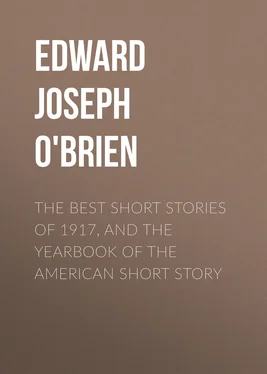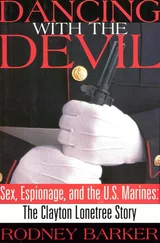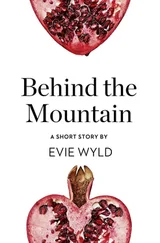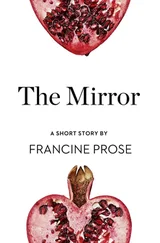Edward O'Brien - The Best Short Stories of 1917, and the Yearbook of the American Short Story
Здесь есть возможность читать онлайн «Edward O'Brien - The Best Short Stories of 1917, and the Yearbook of the American Short Story» — ознакомительный отрывок электронной книги совершенно бесплатно, а после прочтения отрывка купить полную версию. В некоторых случаях можно слушать аудио, скачать через торрент в формате fb2 и присутствует краткое содержание. Издательство: Иностранный паблик, Жанр: foreign_prose, literature_20, foreign_antique, на английском языке. Описание произведения, (предисловие) а так же отзывы посетителей доступны на портале библиотеки ЛибКат.
- Название:The Best Short Stories of 1917, and the Yearbook of the American Short Story
- Автор:
- Издательство:Иностранный паблик
- Жанр:
- Год:неизвестен
- ISBN:нет данных
- Рейтинг книги:3 / 5. Голосов: 1
-
Избранное:Добавить в избранное
- Отзывы:
-
Ваша оценка:
- 60
- 1
- 2
- 3
- 4
- 5
The Best Short Stories of 1917, and the Yearbook of the American Short Story: краткое содержание, описание и аннотация
Предлагаем к чтению аннотацию, описание, краткое содержание или предисловие (зависит от того, что написал сам автор книги «The Best Short Stories of 1917, and the Yearbook of the American Short Story»). Если вы не нашли необходимую информацию о книге — напишите в комментариях, мы постараемся отыскать её.
The Best Short Stories of 1917, and the Yearbook of the American Short Story — читать онлайн ознакомительный отрывок
Ниже представлен текст книги, разбитый по страницам. Система сохранения места последней прочитанной страницы, позволяет с удобством читать онлайн бесплатно книгу «The Best Short Stories of 1917, and the Yearbook of the American Short Story», без необходимости каждый раз заново искать на чём Вы остановились. Поставьте закладку, и сможете в любой момент перейти на страницу, на которой закончили чтение.
Интервал:
Закладка:
"They say a man never has a desire but there's an angel or a devil to write it down. Morton had hardly made his discovery when Bewsher turned up from India, transferred to a crack cavalry regiment; a sunburnt, cordial Bewsher, devilishly determined to enjoy the fulness of his prime. On his skirts, as he had done once before, Morton penetrated farther and farther into the esoteric heart of society. I'm not sure just how Bewsher felt toward Morton at the time; he liked him, I think; at all events, he had the habit of him. As for Morton, he liked Bewsher as much as he dared; he never permitted himself to like any one too much.
"I don't know how it is with you, but I have noticed again and again that intimate friends are prone to fall in love with the same woman: perhaps it is because they have so many tastes in common; perhaps it is jealousy—I don't know. Anyhow, that is what happened to these two, Morton first, then Bewsher; and it is characteristic that the former mentioned it to no one, while the latter was confidential and expansive. Such men do not deserve women, and yet they are often the very men women fall most in love with. At first the girl had been attracted to Morton, it seems; he intrigued her—no doubt the sense of power about him; but the handsomer man, when he entered the running, speedily drew ahead. You can imagine the effect of this upon her earlier suitor. It was the first rebuff that for a long time had occurred to him in his ordered plan of life. He resented it and turned it over in his mind, and eventually, as it always does to men of his kind, his opportunity came. You see, unlike Bewsher and his class, all his days had been an exercise in the recognition and appreciation of chances. He isolated the inevitable fly in the ointment, and in this particular ointment the fly happened to be Bewsher's lack of money and the education the girl had received. She was poor in the way that only the daughter of a great house can be. To Morton, once he was aware of the fly, and once he had combined the knowledge of it with what these two people most lacked, it was a simple thing. They lacked, as you have already guessed, courage and directness. On Morton's side was all the dunder-headism of an aristocracy, all its romanticism, all its gross materialism, all its confusion of ideals. But you mustn't think that he, Morton, was cold or objective in all this: far from it; he was desperately in love with the girl himself, and he was playing his game like a man in a corner—all his wits about him, but fever in his heart.
"There was the situation, an old one—a girl who dare not marry a poor man, and a poor man cracking his brains to know where to get money from. I dare say Bewsher never questioned the rightness of it all—he was too much in love with the girl, his own training had been too similar. And Morton, hovering on the outskirts, talked—to weak people the most fatal doctrine in the world—the doctrine of power, the doctrine that each man and woman can have just what they want if they will only get out and seek it. That's true for the big people; for the small it usually spells death. They falter on methods. They are too afraid of unimportant details. His insistence had its results even more speedily than he had hoped. Before long the girl, too, was urging Bewsher on to effort. It isn't the first time goodness has sent weakness to the devil. Meanwhile the instigator dropped from his one-time position of tentative lover to that of adviser in particular. It was just the position that at the time he most desired.
"Things came to a head on a warm night in April. Bewsher dropped in upon Morton in his chambers. Very handsome he looked, too, I dare say, in his evening clothes, with an opera-coat thrown back from his shoulders. I remember well myself his grand air, with a touch of cavalry swagger about it. I've no doubt he leaned against the chimney-piece and tapped his leg with his stick. And the upshot of it was that he wanted money.
"Oh, no! not a loan. It wasn't as bad as that. He had enough to screw along with himself; although he was frightfully in debt. He wanted a big sum. An income. To make money, that was. He didn't want to go into business if he could help it; hadn't any ability that way; hated it. But perhaps Morton could put him in the way of something? He didn't mind chances."
"Do you see?" Sir John leaned forward. "And he never realized the vulgarity of it—that product of five centuries, that English gentleman. Never realized the vulgarity of demanding of life something for nothing; of asking from a man as a free gift what that man had sweated for and starved for all his life; yes, literally, all his life. It was an illumination, as Morton said, upon that pitiful thing we call 'class.' He demanded all this as his right, too; demanded power, the one precious possession. Well, the other man had his code as well, and the first paragraph in it was that a man shall get only what he works for. Can you imagine him, the little ugly man, sitting at his table and thinking all this? And suddenly he got to his feet. 'Yes,' he said, 'I'll make you a rich man.' But he didn't say he would keep him one. That was the third high light—the little man standing where all through the ages had stood men like him, the secret movers of the world, while before them, supplicating, had passed the beauty and the pride of their times. In the end they all beg at the feet of power—the kings and the fighting men. And yet, although this was the great, hidden triumph of his life, and, moreover, beyond his hopes a realization of the game he had been playing—for it put Bewsher, you see, utterly in his power—Morton said at the moment it made him a little sick. It was too crude; Bewsher's request too unashamed; it made suddenly too cheap, since men could ask for it so lightly, all the stakes for which he, Morton, had sacrificed the slow minutes and hours of his life. And then, of course, there was this as well: Bewsher had been to Morton an ideal, and ideals can't die, even the memory of them, without some pain."
Mrs. Malcolm, watching with lips a little parted, said to herself: "He has uncoiled too much."
"Yes"—Sir John reached out his hand and, picking up a long-stemmed rose from the table, began idly to twist it in his fingers. "And that was the end. From then on the matter was simple. It was like a duel between a trained swordsman and a novice; only it wasn't really a duel at all, for one of the antagonists was unaware that he was fighting. I suppose that most people would call it unfair. I have wondered. And yet Bewsher, in a polo game, or in the game of social life, would not have hesitated to use all the skill and craft he knew. But, you say, he would not have played against beginners. Well, he had asked himself into this game; he had not been invited. And so, all through that spring and into the summer and autumn the three-cornered contest went on, and into the winter and on to the spring beyond. Unwittingly, the girl was playing more surely than ever into Morton's hand. The increasing number of Bewsher's platitudes about wealth, about keeping up tradition, about religion, showed that. He even talked vaguely about giving up the army and going into business. 'It must have its fascinations, you know,' he remarked lightly. In the eyes of both of them Morton had become sort of fairy godfather—a mysterious, wonderful gnome at whose beck gold leaped from the mountainside. It was just the illusion he wished to create. In the final analysis the figure of the gnome is the most beloved figure in the rotten class to which we belong.
"And then, just as spontaneously as it had come, Bewsher's money began to melt away—slowly at first; faster afterward until, finally, he was back again to his original income. This was a time of stress, of hurried consultations, of sympathy on the part of Morton, of some rather ugly funk on the part of Bewsher; and Morton realized that in the eyes of the girl he was rapidly becoming once more the dominant figure. It didn't do him much good"—Sir John broke the stem of the rose between his fingers.
Читать дальшеИнтервал:
Закладка:
Похожие книги на «The Best Short Stories of 1917, and the Yearbook of the American Short Story»
Представляем Вашему вниманию похожие книги на «The Best Short Stories of 1917, and the Yearbook of the American Short Story» списком для выбора. Мы отобрали схожую по названию и смыслу литературу в надежде предоставить читателям больше вариантов отыскать новые, интересные, ещё непрочитанные произведения.
Обсуждение, отзывы о книге «The Best Short Stories of 1917, and the Yearbook of the American Short Story» и просто собственные мнения читателей. Оставьте ваши комментарии, напишите, что Вы думаете о произведении, его смысле или главных героях. Укажите что конкретно понравилось, а что нет, и почему Вы так считаете.












